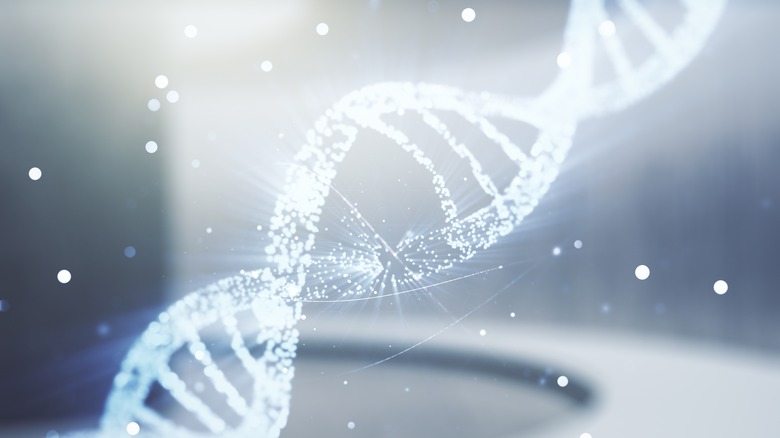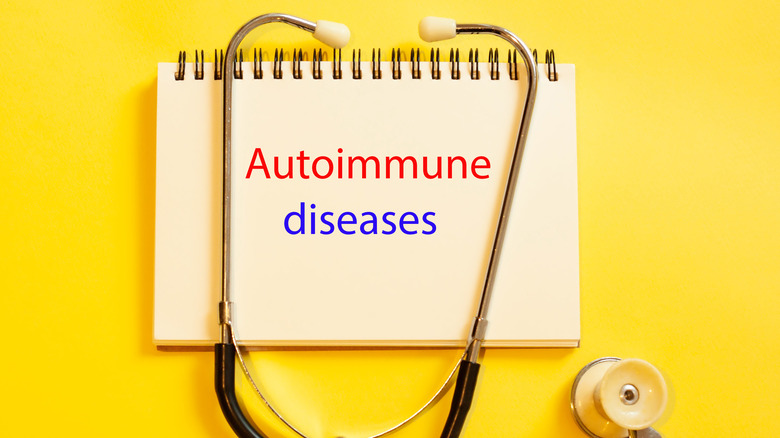The Black Death Still Affects Global Health Centuries After It Wiped Out Half Of Europe
An article titled "The source of the Black Death in fourteenth-century central Eurasia" (via Nature) explains that the Black Death began in 1347 and resulted in a 500-year-long pandemic. NPR notes that the Black Death is caused by a bacteria known as Yersinia pestis. Once an individual was infected, they could expect flu-like symptoms and the growth of black boils on their body (per PBS). Ultimately, Scientific American reports, the Black Death decimated around 30% to 50% of Europe's population. According to Britannica, this led to societal and psychological changes throughout the continent. Although it was unknown then, the Black Death also changed genetics.
Per CNN, a new study published in the journal Nature revealed that there is a reason why some survived the Black Death while others did not: genetic mutations. Luis Barreiro, a geneticist from the University of Chicago who helped write the study, told NPR, "It's really a big deal. It shows what's possible [for humans], in terms of adaptation in response to many different pathogens." A 2008 study by Sharon DeWitte, a biological anthropologist, found that those who had died from the Black Death had likely been unhealthy prior to succumbing to the disease (via Live Science). For those who did survive, the BBC states, there are pros and cons for their descendants.
Descendants of those who survived the Black Death had longer lives
In 2014, DeWitte did another study and uncovered that after the Black Death, more people lived to be over the age of 70 (per Live Science). Prior to this, only 10% of people lived past this age. Most importantly, DeWitte theorized that survivors of the Black Death had stronger genes that were later passed down to their children. Ultimately, this ensured that future generations would also survive the disease and live longer lives. DeWitte explained to the University of South Carolina why this discovery was so important. She stated, "Knowing how strongly diseases can actually shape human biology can give us tools to work with in the future to understand disease and how it might affect us."
According to Live Science, DeWitte conducted her research by examining hundreds of skeletons from before and after the Black Death. Per the BBC, she concluded that "This study suggests that even in the face of major threats to health, such as repeated plague outbreaks, several generations of people who lived after the Black Death were healthier in general than people who lived before the epidemic."
DeWitte also noted that a longer life expectancy after the plague was likely due to natural selection, genetics, and improved resources. That said, CNN states that surviving the plague came with a price.
The connection between the Black Death and autoimmune diseases
Published in Nature, a new study titled "Evolution of immune genes is associated with the Black Death" concludes that genetic mutations were the key to surviving the plague. Just as with DeWitte's study, researchers note that these genes were passed onto their descendants to increase their survival. The BBC explains that the mutated gene at the center of this study is called ERAP2. If an individual had this gene, they were 40% more likely to survive the Black Death. Per NPR, ERAP2 is effective in killing pathogens and getting rid of infections. The publication adds that Europeans still carry these mutated genes today. The issue? The genes could be making these individuals sick.
According to CNN, carrying this gene increases the chance of having an autoimmune disorder like Crohn's disease and rheumatoid arthritis. The publication states that this discovery was made after researchers studied the skeletal remains of those who died before and after the Black Death in London and Denmark for a total of seven years. Moreover, it's unknown how effective ERAP2 is against the Black Death today. Hendrik Poinar, a coauthor of the study and an anthology professor, stated, "We do not know if it still protects against the plague given that the number of cases in present day populations is very low but we speculated that it should."
NPR notes that it's unknown if descendants from other European countries and continents also carry this gene. When asked if COVID-19 will have a similar impact on genetics, Barreiro told CNN no; COVID mostly killed people who were past reproduction age.


